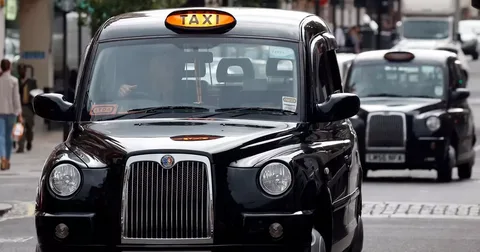Planning your spiritual journey to the holy cities of Makkah and Madinah requires careful preparation, particularly as regulations and procedures continue to evolve. Whether this is your first pilgrimage or you're returning to the blessed lands, understanding what's expected in 2025 will help ensure your journey is both spiritually fulfilling and practically smooth.
Updated Visa Requirements for UK Muslims
The Saudi government has streamlined the Umrah visa process considerably for British pilgrims. Applications are now processed entirely online through approved travel agents or the Nusuk platform. Your passport must have at least six months' validity remaining, and you'll need to provide proof of accommodation and return flights. Women under 45 can travel without a mahram (male guardian) when part of an organised group, though many families still prefer travelling together for the spiritual experience.
Processing times have been reduced to just 48 hours in most cases, though it's wise to apply at least two weeks before your intended departure. The visa itself is valid for 90 days and allows multiple entries, giving you flexibility if you're considering extended stays or visits to other Saudi cities.
Vaccination and Health Documentation
Health requirements remain a priority for Saudi authorities. The meningitis ACWY vaccine must be administered at least ten days before arrival and is valid for three years. COVID-19 vaccination certificates may still be requested, though requirements have been relaxed compared to previous years. Keep all documentation accessible on your phone and in physical form – immigration officers check these thoroughly.
Travel insurance covering medical emergencies is strongly recommended, as healthcare costs for non-Saudis can be substantial. Many cheap Umrah packages now include basic insurance, but verify the coverage levels carefully.
What to Pack for Your Journey
The climate in Saudi Arabia demands thoughtful packing. Lightweight, breathable fabrics work best in the intense heat, particularly if you're travelling during summer months when temperatures exceed 40°C. Men will need their ihram garments – two white unstitched cloths worn during the pilgrimage rituals. Women should pack modest clothing that covers everything except the face and hands, though full face coverings aren't required during Umrah.
Comfortable walking shoes are essential, as you'll be covering considerable distances, especially during Tawaf (circumambulation of the Kaaba) and Sa'i (walking between Safa and Marwa). A small backpack for carrying water, prayer mats, and personal items proves invaluable. Don't forget a universal plug adapter – UK plugs won't work in Saudi sockets.
Financial Preparations
The Saudi Riyal (SAR) is the local currency, and whilst cards are widely accepted in major establishments, cash remains necessary for smaller vendors and donations. Currency exchange rates fluctuate, so monitoring them before departure helps you budget effectively. ATMs are plentiful around the Haramain, but fees can accumulate quickly.
Budget approximately £50-£100 daily for meals, local transport, and incidentals, though this varies based on personal preferences. Many pilgrims find that Umrah packages including half-board accommodation strike the right balance between convenience and cost control.
Understanding the Rituals
Umrah consists of four main rites that must be performed in sequence. First, pilgrims enter the state of ihram at the designated miqat (boundary point), making the intention for Umrah and donning the ritual garments. Upon arriving at Masjid al-Haram, Tawaf is performed – seven anticlockwise circuits around the Kaaba. Following this, Sa'i involves walking seven times between the hills of Safa and Marwa, commemorating Hajar's search for water.
The pilgrimage concludes with Tahallul – men shaving or trimming their hair whilst women cut a fingertip's length from their locks. Each ritual carries deep spiritual significance, and understanding the prophetic traditions associated with them enriches the experience immeasurably.
Accommodation Considerations
Hotels near the Haram are graded by their proximity to the mosque, measured in walking minutes. Properties within a five-minute walk command premium prices but save considerable time and energy, particularly valuable for elderly pilgrims or those with mobility concerns. Mid-range hotels situated 10-15 minutes away offer better value whilst remaining conveniently accessible.
The Abraj Al Bait complex, directly overlooking the Kaaba, represents luxury accommodation, though many pilgrims find smaller hotels provide a more authentic experience. When comparing best Umrah packages, examine not just the hotel rating but its actual distance and available facilities.
Technology and Connectivity
Free Wi-Fi is available throughout Masjid al-Haram and most hotels, making staying connected straightforward. UK mobile networks offer roaming bundles for Saudi Arabia, though purchasing a local SIM card often proves more economical for extended stays. The Haramain high-speed railway connecting Makkah and Madinah can be booked via smartphone apps, as can taxis through Uber and Careem.
Numerous apps assist with prayer times, Qibla direction, and supplications specific to each ritual. The Tawakkalna app, introduced during the pandemic, may still be required for accessing certain facilities, so downloading it beforehand prevents last-minute complications.
Cultural Etiquette and Expectations
Saudi society observes strict Islamic principles, and visitors are expected to respect these norms. Gender segregation is maintained in many public spaces, with separate sections in restaurants and prayer areas. Public displays of affection between spouses aren't appropriate, and modest behaviour is expected from everyone.
Prayer times are observed scrupulously, with shops closing during these periods. The call to prayer echoes throughout the holy cities five times daily, and it's considered respectful to pause activities during these moments, even if you're not praying immediately.
Making the Most of Your Spiritual Journey
Beyond the obligatory rites, Umrah offers countless opportunities for worship and reflection. Visiting historical sites like Jabal al-Nour (where revelation began) or the Prophet's Mosque in Madinah deepens your connection to Islamic history. Many pilgrims maintain personal journals, documenting their spiritual insights and experiences.
The nights spent in the Haram hold particular significance, with many worshippers remaining for tahajjud prayers in the tranquil pre-dawn hours. These moments of profound devotion often become the most treasured memories of the entire journey.
Your Umrah in 2025 can be a transformative experience when approached with proper preparation and sincere intention. May your pilgrimage be accepted and your prayers answered.




